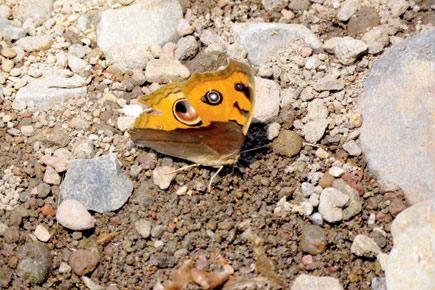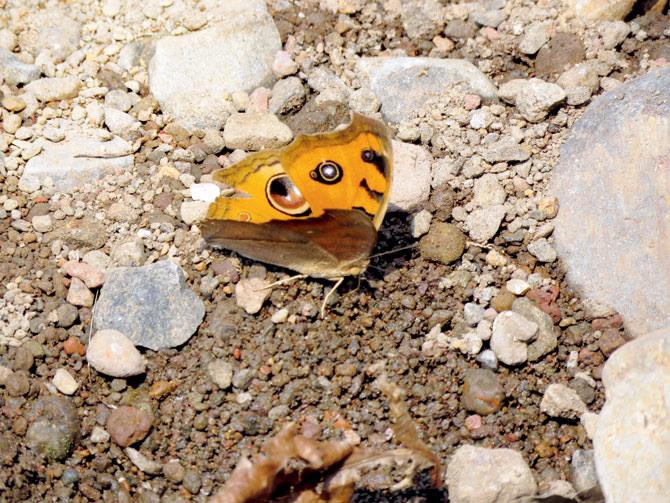Getting dirty is not a foreign concept to wild or domestic animals. This goes for our urban kids too. It’s obviously a nightmare for parents who fear the myriad germs in the soil

 Getting dirty is not a foreign concept to wild or domestic animals. This goes for our urban kids too. It’s obviously a nightmare for parents who fear the myriad germs in the soil. In reality, the soil is a healthy mix of living and non-living matter, which supports life that thrives in it. Sadly, we have been contaminating it with detergents, surfactants, burnt oils, grease and phenyls, other volatile organic compounds (VOCs) and a zillion other bio-hazardous materials.
Getting dirty is not a foreign concept to wild or domestic animals. This goes for our urban kids too. It’s obviously a nightmare for parents who fear the myriad germs in the soil. In reality, the soil is a healthy mix of living and non-living matter, which supports life that thrives in it. Sadly, we have been contaminating it with detergents, surfactants, burnt oils, grease and phenyls, other volatile organic compounds (VOCs) and a zillion other bio-hazardous materials.

Peacock Pansy Mud-Puddling
ADVERTISEMENT
Geophagia or eating soil and minerals is a well-established phenomenon in all animal groups. In humans, it has been documented since ancient civilisations, especially in pregnant women and is prevalent in many cultures. The habit of licking soil by wild and domestic animals, in specified areas called salt or mineral licks, is related to their need for sodium, calcium, magnesium, iron and zinc. These mineral rich soils are located in very specific areas in the landscape and are guarded or shared as per the existing social hierarchy among those animals.
Salt-licking exists in urban animals too, including squirrels, dogs, bats, monkeys and domesticated cattle. Do these animals get access to their most primordial needs? I strongly doubt it. Due to the mindless development in cities, these primary needs of animals which have strong impacts on their breeding, behaviour and social position, are drastically compromised. In consequence, bats that lick soil as a detoxification mechanism are severely affected, and their capacity to control pests such as cockroaches, mosquitoes and flies is compromised.
Following the United Nation’s theme, people world over are celebrating the International Year of the Soil and we have put together a two-day festival, Earth Mela, to cherish our soils. In concretised Mumbai, soil is treated like dirt. It is beyond my comprehension how the substrate in which we grow our food, the cooling material we put on our face and which elephants, ascetics and domestic pigs use to keep ticks and mites away can be anything but useful. The life-bearing soil turns dangerous when we contaminate it with disease-carrying human faeces or dump hazardous heavy metals, petroleum-based wastes and non-biodegradable post-construction rubble.
The home to earthworms, millipedes, ant colonies, termites, even the material used by potter wasps, swallows, hornbills to seal their nest holes and our human potters is a precious resource to be cherished, kept clean and rejuvenated with compost. In nature, it takes over 10,000 years to create a centimetre of soil, but when we utilise our household kitchen waste, we can easily create soil in our window composters within four months. This nutrient rich soil is not only great for your potted plants (roses, hibiscus or tomato), but also the perfect mechanism to prevent large landfills which destroy our waterbodies.
My favourite pass-time is to sit on a tree-covered playground and watch butterflies mud-puddle. Dozens of tiny fluttering gems gather on the moist soil around lakes and ponds to pick up minerals. These minerals are generally taken up by the males and transferred to their mates during copulation, to help the survival of the eggs. These butterflies gravitate to shaded moist patches and drink to their hearts content, picking minerals and dropping near distilled water from the other end. They are engrossed and magnetised during this state and give photographers an excellent chance to capture them in their lenses.
This form of fixation for eating soils be it by humans, butterflies, monkeys, elephants or cows, is an integral part of their survival and any changes in our urban landscapes have to accommodate for their right to their favourite substances.
Write in to Anand Pendharkar at sproutsonline@gmail.com
 Subscribe today by clicking the link and stay updated with the latest news!" Click here!
Subscribe today by clicking the link and stay updated with the latest news!" Click here!







